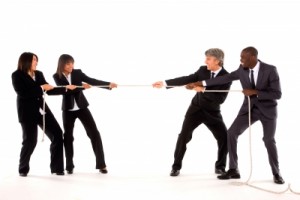Don’t be Anxious About Pruning in Therapy
What in your life needs to be pruned? Pruning is the idea of cutting away something old or something that you don’t want in order to create growth in a new area. I don’t like pruning plants – cutting away, not sure if I am doing it right, not sure if I took too much or too little. And what I have noticed is that the plants tend to grow even more so.
 I equate this to the birth and death cycle. In order to direct the growth, I need to cut back. I think of containing the energy. If the rose bush is huge and all over, the life energy goes to it all, even the parts that are sickly because it wants to live. If I cut those sickly parts, then the energy can go toward the healthy parts and create more health. In order for something new to emerge, something needs to die. In order to step forward confidently in something, I need to let go of what is holding me back from that.
I equate this to the birth and death cycle. In order to direct the growth, I need to cut back. I think of containing the energy. If the rose bush is huge and all over, the life energy goes to it all, even the parts that are sickly because it wants to live. If I cut those sickly parts, then the energy can go toward the healthy parts and create more health. In order for something new to emerge, something needs to die. In order to step forward confidently in something, I need to let go of what is holding me back from that.
What do you want to prune? What holds you back from pruning?
Image curtesy of Amenic181 at freedigitalphotos.net


 your two hands interact together. Move them closer together then farther apart. Have one hand try on the movement, feeling of the other hand and vice versa. Do you notice anything different in your experience of the two appearing contradictory statements?
your two hands interact together. Move them closer together then farther apart. Have one hand try on the movement, feeling of the other hand and vice versa. Do you notice anything different in your experience of the two appearing contradictory statements? of you. Now with one hand push against the other. What does your other hand do? Does it resist and push back? Does it flop and let the other hand push it over? Does it push back to keep it where it is or try to push the other hand away? Were there places where you felt the resistance and other places on your palm where you didn’t (for example fingers pushing or heel of hand, yet not the center of palm or knuckles)? Typically when people do this, their other hand pushes back.
of you. Now with one hand push against the other. What does your other hand do? Does it resist and push back? Does it flop and let the other hand push it over? Does it push back to keep it where it is or try to push the other hand away? Were there places where you felt the resistance and other places on your palm where you didn’t (for example fingers pushing or heel of hand, yet not the center of palm or knuckles)? Typically when people do this, their other hand pushes back. rselves are completely and 100% true. And we totally buy into them, someone can even tell us a different perspective and we don’t believe them.
rselves are completely and 100% true. And we totally buy into them, someone can even tell us a different perspective and we don’t believe them.
 realized that my rear seam had split open. “Oh my. I will not be going to the hot tub then,” I thought.
realized that my rear seam had split open. “Oh my. I will not be going to the hot tub then,” I thought. The book is 47% off until Jan 22nd so it’s a perfect time to get it for yourself, co-workers, your team, anyone you know is interested in the leadership paradigm game changer of the 21st century.
The book is 47% off until Jan 22nd so it’s a perfect time to get it for yourself, co-workers, your team, anyone you know is interested in the leadership paradigm game changer of the 21st century.